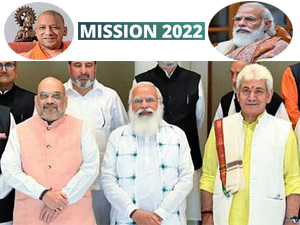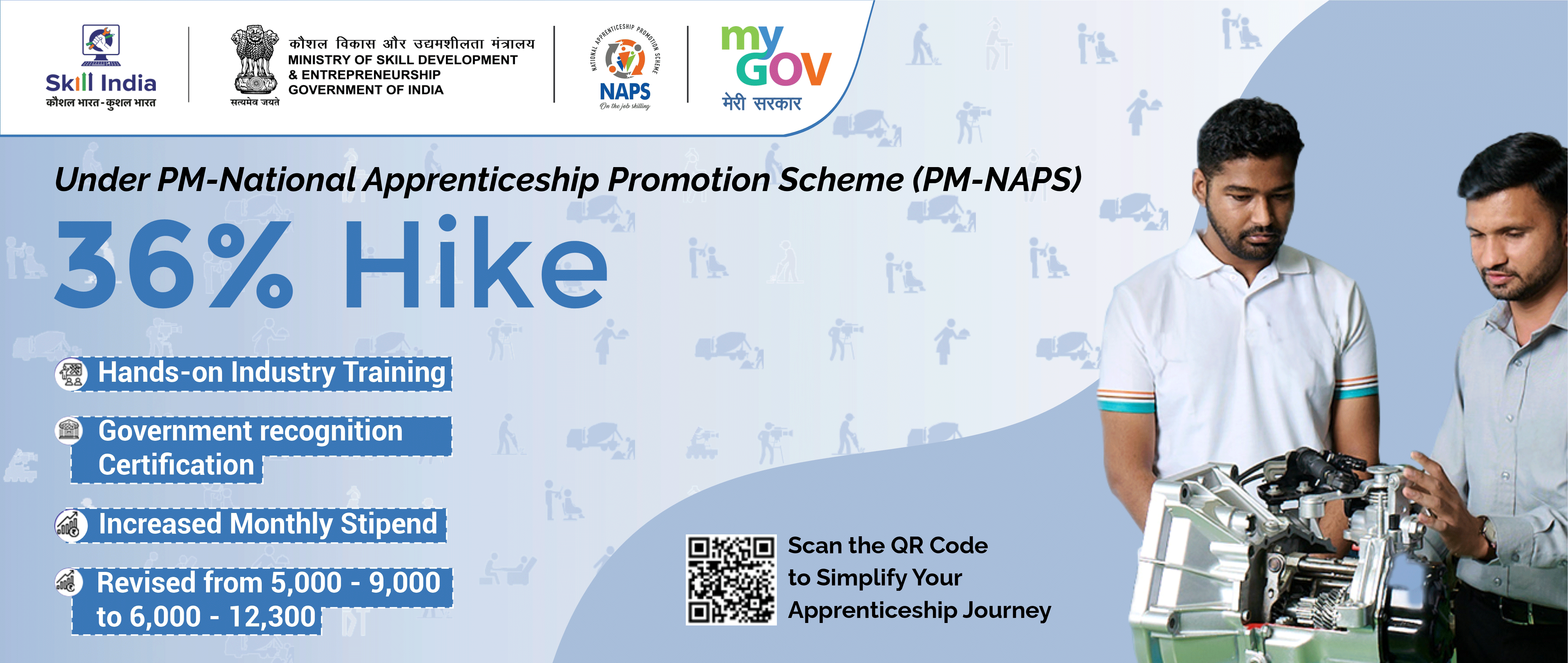New Delhi (26.06.2021): When it comes to intra-Sangh transactions, PM Narendra Modi's subtlety knows no bounds. And without ruffling any feathers, he makes his point and patiently waits for the Sangh to come around his viewpoint. He ensures that he takes no public stand in intra-Sangh matters and this helps him avoid standoffs.
Take the example of J&K Lt. Governor Manoj Sinha. It's known in the NDA circles that he was the PM's and the Home Minister Amit Shah's first choice for the post of UP CM four years ago when the BJP made a spectacular victory in the state. But when the backroom manipulations led to the appointment of Adityanath as the CM, the PM and the HM kept mum, and let things reach their logical destination.
In the four years since the appointment of Adityanath as CM, he is seen to have achieved little in terms of taking the state forward to fulfill the party's development agenda despite improving the state's ranking in the ease of doing business. The Covid-19 pandemics only made things more difficult for him. On top, his style of functioning, seen as autocratic, is said to have created the space for the opposition to influence and manipulate public opinion against the BJP - as was reflected in the respectable number of seats won by the SP in the recently-held Panchayat elections.
On the other hand, during the same period, Manoj Sinha worked assiduously to promote the Party, manage the PM's constituency, and quietly monitor the development of Varanasi as a heritage city. He continued with this, away from the limelight, till one fine day in August 2020. That day, the PM and the HM sent him off to J&K as its Governor to initiate the participative political process in the troubled state in the aftermath of the revocation of Article 370 a year before in August 2019.
Like what he did in 2014-19 to turn around the scandal-ridden Telecom Ministry by visible merit and integrity to move into the 5G Age, he similarly worked purposefully in J&K. The results began to show sooner than later. By making himself accessible to all quarters of J&K society and politics, he first organized the grassroots elections of panchayats, DDCs, and municipal bodies. The success of these elections, with voters' participation exceeding 50%, paved the way for the nationalist forces to rally around him and help him move in the direction of holding participative assembly elections.
And, then, like a good center forward player, he passed the ball to the PM and the HM, who have now held the All-Party Conference to thresh out a consensus for holding the elections and the return of J&K to the full statehood from the transitory phase as a union territory.
And the presence of each and every leader at the PM's three-hour conference, without any feeling of bitterness, showed how much Sinha had worked to soothe their feelings, particularly those born out of the fact that almost all of them were under house arrest or detained after the revocation of Article 370 on August 5, 2019.
Among the leaders who participated in the meeting with the PM were Congress' Ghulam Nabi Azad, Tara Chand and GA Mir; National Conference's Dr. Farooq Abdullah and Omar Abdullah; PDP's Mehbooba Mufti, J-K Apni Party's Altaf Bukhari; BJP's Ravinder Raina, Nirmal Singh, and Kavinder Gupta; CPI(M)'s M Y Tarigami; National Panthers Party's Prof Bheem Singh; and Peoples Conference's Sajad Gani Lone.
The success of the June 24 PM meeting with Kashmiri leaders may now be leveraged by Narendra Modi to prevail over the Sangh in the matter of selection of the next UP CM. Sinha's track record as Kashmir governor projects him not only as being the modern and the appealing face of Hindutva but a strong champion and builder of nationalism in the Islamist-stricken state. Yogi Adityanath simply doesn't have these qualifications, and therefore, there are chances that he may not find it easy to get back to the CM's chair if BJP wins and retains UP in the marathon race that has begun a year ahead of the scheduled election.
(By Rakesh Ranjan & MK Shukla)






























